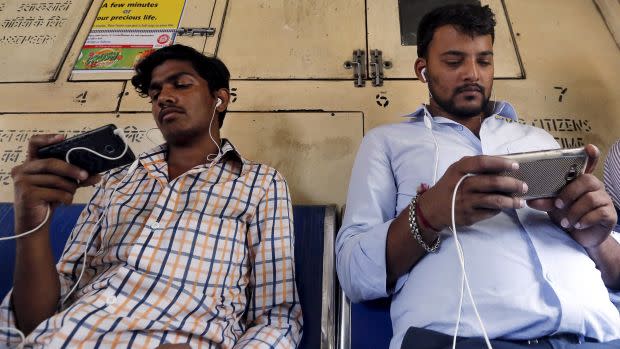Millions of Indians flocked to download a tool that removes Chinese apps

Last year users in India were in love with TikTok, an app brought to them by a Chinese company. Their latest craze is a tool that helps them get rid of Chinese apps.
Remove China Apps, an Android app developed by India-based OneTouch AppLabs, was downloaded around five million times from late May to June 1, according to analytics firm Sensor Tower. It even became the top free Android app in India over the weekend, according to the firm.
However, the popularity of the app came to an abrupt end today (June 3), when Google decided to remove the tool from its Google Play store. OneTouch AppLabs announced the suspension, but didn’t say why it was removed. It urged users to keep trying to figure out the national origin of the apps they use.
Dear Friends,
Google has suspended our #RemoveChinaApps from google play store.
Thank you all for your support in past 2 weeks.
"You Are Awesome"TIP
Its easy to find the origin of any app by searching on google
by typing
<AppName> origin countryStay Tuned !! Stay Safe!!
— onetouchapplabs (@onetouchapplabs) June 2, 2020
According to TechCrunch the tool violated Google Play’s Deceptive Behavior Policy, which says apps shouldn’t “mislead” users into removing or disabling third-party apps ,or modify device settings without user consent.
The tool’s popularity is a reflection of the increasingly strained relationship between India and China amid the coronavirus pandemic. The two neighboring countries have long had border disputes, but their tensions have broadened recently, and many in India blame China for the pandemic and the lockdown they have been living under since March.
In April, India moved to curb foreign investment from neighboring countries, a move seen as primarily intended to stop Chinese companies from acquiring distressed companies during the economic downturn caused by the coronavirus outbreak.
And starting in early May, thousands of Chinese and Indian troops have been entangled in a standoff in India’s Ladakh region, with soldiers engaging in skirmishes as each side accuses the other of trespassing areas in dispute between the countries. Global Times, a hawkish Chinese state-owned tabloid, warned that Beijing could take retaliatory measures if India does not curb its “irrational anti-China sentiment,” as illustrated by the popularity of the app.
The Remove China app would alert users to apps it deemed to be developed by Chinese companies and let users decide whether they want to delete them. Once the app decided a user no longer had any Chinese apps on their phone, a message would pop up and say: “Congratulation. You are awesome. No China app found in your system.”
Testing by various tech publications found the app was able to detect popular Chinese apps such as WeChat and Weibo, but failed to identify TikTok and Tencent’s mobile game PUBG at times. OneTouch AppLabs said on its website that it detects apps’ country of origin based on market research, and does not guarantee “any correct/wrong information.”
While hostile consumer sentiment in one of their largest markets is worrying for Chinese companies, it’s hard for Indian users to replace Chinese products overnight. Chances are high that Indians who downloaded the anti-China app were doing so on a Chinese phone—smartphone makers like Xiaomi and Oppo accounted for over 70% of the market in the country in the first quarter, according to Counter Point Research.
Meanwhile, Chinese capital has helped build many of India’s “homegrown”tech success stories. Tech champions like Alibaba and Tencent have invested in almost half the unicorns India has produced, along with Chinese investors who have increased their investment in India from hundreds of millions of dollars in 2013 to over $8 billion dollars last year. The limitation on Chinese investment could leave Indian startups scrambling for funding and tech know-how.
When it comes to platforms, India accounts for the biggest share of TikTok’s over 2 billion downloads globally—even if it has come under fire recently for moderation failures. Meanwhile India quickly soured on Mitron, an app that presented itself as a TikTok rival and garnered 10 million downloads in a month, until it turned out it was basically a version of an app developed in Pakistan. It was also taken down from Google Play this week after reports on the app’s security flaws surfaced in Indian media.
Sign up for the Quartz Daily Brief, our free daily newsletter with the world’s most important and interesting news.
More stories from Quartz:
The UK wants to reinvent its relationship with China in the age of Brexit
Hollywood is getting back to work with new protocols that could change what we see on screen

 Yahoo Finance
Yahoo Finance 